Search
Did you mean: Antigone?
Search Results

Image
Roman Votive Male Torso, from Isola Farnese
Ancient Romans often dedicated votive objects to specific gods associated with healing in the hopes of recovery. These objects were in the form or representation of the affected body part and would be left at the temple of a god. This...
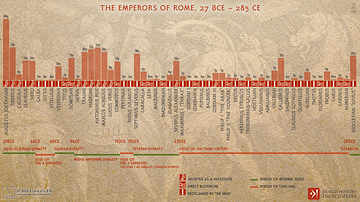
Image
The Emperors of Rome, 27 BCE - 285 CE
An infographic depicting the timeline of the emperors of Rome from the ascension of Caesar Augustus (Octavian) in 27 BCE until the end of the Crisis of the Third Century and the onset of the Tetrarchy under Diocletian "Jovius" in 285 CE through...
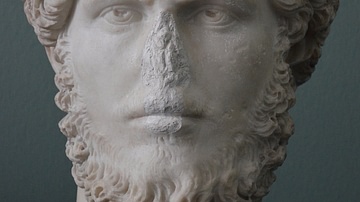
Image
Bust of Roman Emperor Lucius Verus
Marble head of Roman Emperor Lucius Verus, c. 160-170 CE. (Ny Carlsberg Glyptotek, Copenhagen)
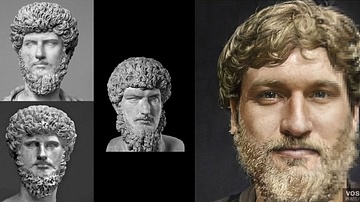
Image
Lucius Verus (Artistic Facial Reconstruction)
A photorealistic representation of what the Roman emperor Lucius Verus (r. 161-169 CE) may have looked like. Based on contemporary and near contemporary descriptions, as well as archaeological evidence. Pictured alongside the reconstruction...
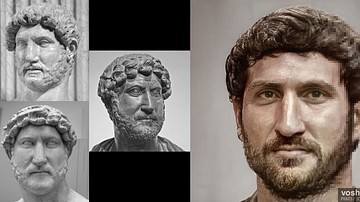
Image
Hadrian (Artistic Facial Reconstruction)
A photorealistic representation of what the Roman emperor Hadrian (r. 117-138 CE) may have looked like. Based on contemporary and near contemporary descriptions, as well as archaeological evidence. Pictured alongside the reconstruction...
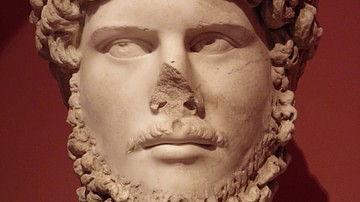
Image
Marble Bust of Lucius Verus
Head of Lucius Verus (reign: 161 – 169 CE), from a colossal statue found in the north gallery of the palaestra of the South Baths in Perge, Turkey. (Antalya Museum)
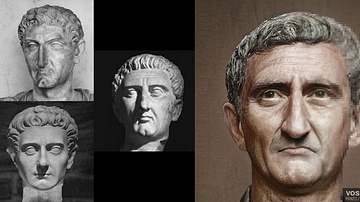
Image
Nerva (Artistic Facial Reconstruction)
A photorealistic representation of what the Roman emperor Nerva (r. 96-98 CE) may have looked like. Based on contemporary and near contemporary descriptions, as well as archaeological evidence. Pictured alongside the reconstruction are...

Video
The Plague of Justinian
In 540 CE, Eastern Roman Emperor Justinian I had great ambition of regaining Western Roman territories. His goal was to restore the Eastern Roman empire to what it was before the Roman empire dissolved. However, just a year later Emperor...

Video
Plagues and Pandemics in the Ancient and Medieval World
Learn all about the Plagues and Pandemics in the Ancient and Medieval world! In this video Kelly Macquire discusses the most prominent plagues that the human race has overcome in history, and the effects they had on the populations. The...

Video
Plague of Justinian & Yersinia pestis
Genomic analysis has shown that the plague of Justinian and the Black Death were caused by distinct strains of the same pathogen. Dr. Hendrik Poinar discusses the findings.Video copyright: McMaster University